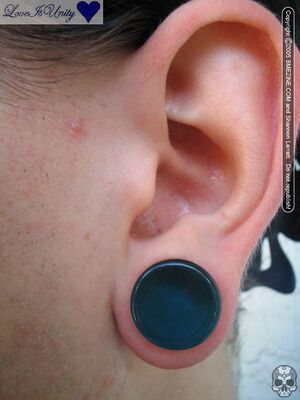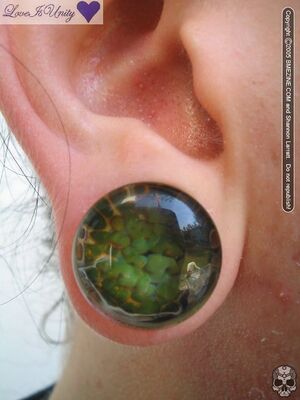Borosilicate Glass: Difference between revisions
(Created page with "<html><div class="mw-content-ltr" dir="ltr" id="mw-content-text" lang="en"><p><b>Borosilicate glass</b> is a type of glass commonly used to make laboratory glassware, glass cookware, and <a class="mw-redirect" href="/index.php?title=Body_jewelry" title="Body jewelry">body jewelry</a>. It is often sold under the brand name Pyrex. </p><p>Borosilicate can withstand much more severe thermal stresses than ordinary glass without breaking, and when it does break, it tends to c...") |
(Page conversion via llm-mediawiki-rev -jwm) |
||
| Line 1: | Line 1: | ||
'''Borosilicate glass''' is a type of glass commonly used to make laboratory glassware, glass cookware, and [[Body jewelry|body jewelry]]. It is often sold under the brand name Pyrex. | |||
Borosilicate can withstand much more severe thermal stresses than ordinary glass without breaking, and when it does break, it tends to crack rather than shattering dangerously. It is chemically inert and as a result highly biocompatible — especially useful for body jewelry. Though it is still a glass (and thus not suitable for thin jewelry which can be easily broken), borosilicate is one of the most inert materials available for piercings where simple, larger [[Gauge|gauge]] jewelry is an option. Most people who cannot wear metal, [[Acrylic|acrylic]], or [[Organic|organic]] jewelry without irritation have no problem with borosilicate jewelry. | |||
Borosilicate glass jewelery comes in a huge variety of colors and beautiful designs. | |||
{| class="wikitable" style="text-align: center;" | |||
|- | |||
| [[File:Gws01.jpg|thumb|Borosilicate Glass Plug]] | |||
| [[File:Gws03.jpg|thumb|Borosilicate Glass Crescent]] | |||
| [[File:Gws06.jpg|thumb|Borosilicate Glass Plug]] | |||
|} | |||
== See Also == | |||
* [[Glass Jewelry]] | |||
* [[Soda-lime Glass]] | |||
* [[Quartz]] | |||
Latest revision as of 00:52, 17 September 2023
Borosilicate glass is a type of glass commonly used to make laboratory glassware, glass cookware, and body jewelry. It is often sold under the brand name Pyrex.
Borosilicate can withstand much more severe thermal stresses than ordinary glass without breaking, and when it does break, it tends to crack rather than shattering dangerously. It is chemically inert and as a result highly biocompatible — especially useful for body jewelry. Though it is still a glass (and thus not suitable for thin jewelry which can be easily broken), borosilicate is one of the most inert materials available for piercings where simple, larger gauge jewelry is an option. Most people who cannot wear metal, acrylic, or organic jewelry without irritation have no problem with borosilicate jewelry.
Borosilicate glass jewelery comes in a huge variety of colors and beautiful designs.


